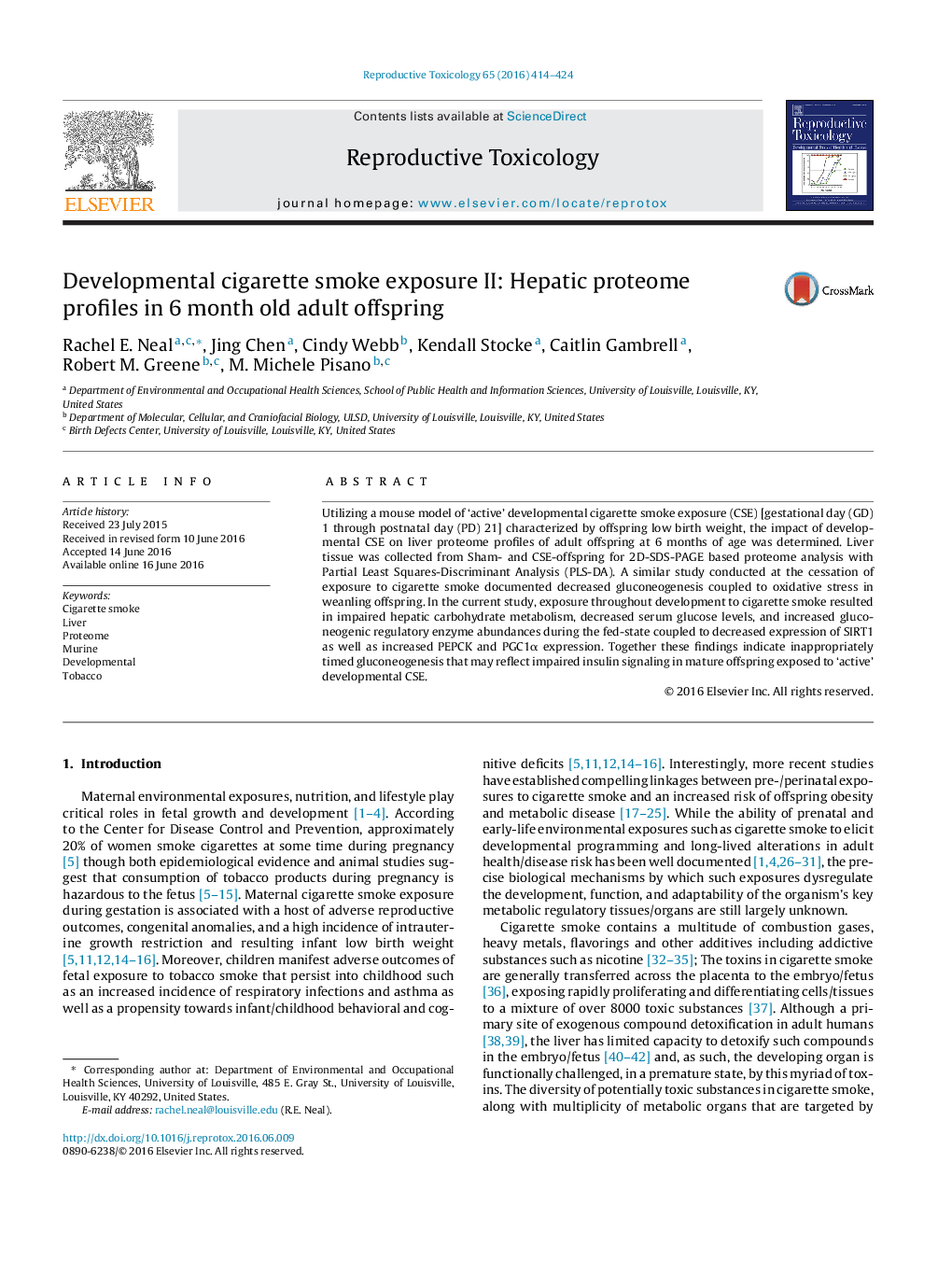| Article ID | Journal | Published Year | Pages | File Type |
|---|---|---|---|---|
| 5857954 | Reproductive Toxicology | 2016 | 11 Pages |
Abstract
Utilizing a mouse model of 'active' developmental cigarette smoke exposure (CSE) [gestational day (GD) 1 through postnatal day (PD) 21] characterized by offspring low birth weight, the impact of developmental CSE on liver proteome profiles of adult offspring at 6 months of age was determined. Liver tissue was collected from Sham- and CSE-offspring for 2D-SDS-PAGE based proteome analysis with Partial Least Squares-Discriminant Analysis (PLS-DA). A similar study conducted at the cessation of exposure to cigarette smoke documented decreased gluconeogenesis coupled to oxidative stress in weanling offspring. In the current study, exposure throughout development to cigarette smoke resulted in impaired hepatic carbohydrate metabolism, decreased serum glucose levels, and increased gluconeogenic regulatory enzyme abundances during the fed-state coupled to decreased expression of SIRT1 as well as increased PEPCK and PGC1α expression. Together these findings indicate inappropriately timed gluconeogenesis that may reflect impaired insulin signaling in mature offspring exposed to 'active' developmental CSE.
Related Topics
Life Sciences
Environmental Science
Health, Toxicology and Mutagenesis
Authors
Rachel E. Neal, Jing Chen, Cindy Webb, Kendall Stocke, Caitlin Gambrell, Robert M. Greene, M. Michele Pisano,
